INSTITUTO DE QUÍMICA
UNIVERSIDADE DE SÃO
PAULO.
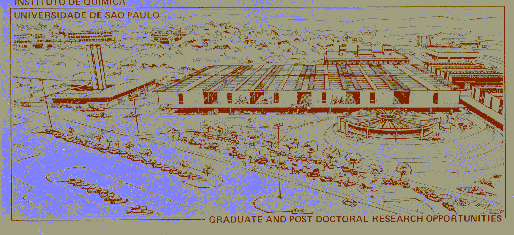
The Instituto de Química, with over
120 faculty members and a support staff of over 230, is the focus of teaching
and research in Chemistry and Biochemistry on the main Cidade Universitária
Campus of the Universidade de São Paulo.
The 35,000 m2 physical space of the Institute
is dedicated to undergraduate and graduate teaching facilities, research
laboratories, faculty and administrative office space, a stockroom with
well-equipped glassblowing, machine shop and animal breeding facilities,
and a central Chemistry-Biochemistry-Pharmacy library.
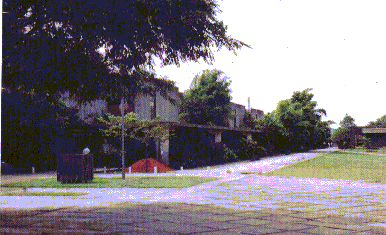
The library, which has been designated
as the Primary National Chemistry Library, houses an outstanding collection
of books and periodicals in an area of 1,700 m2 and is open to both the
academic and industrial communities. In addition to offering undergraduate
courses in Chemistry and Biochemistry for twelve schools of the São
Paulo campus (enrollment of over 2,500 per semester), the Institute awards
both undergraduate degrees in Chemistry and Masters’ and Doctoral degrees
in the fields of Chemistry and Biochemistry. The active involvement of
the faculty in teaching and research is also evidenced by a vigorous scientific
production.
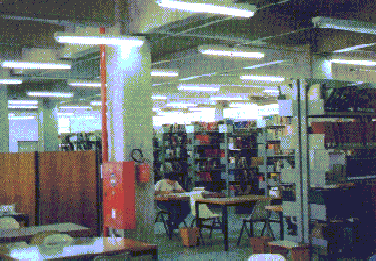
There are no tuition fees for undergraduate
or graduate students and most graduate students receive fellowship stipends
from federal or state granting agencies. The medical, sports and restaurant
facilities of the Universidade de São Paulo are open to all regularly
enrolled graduate students and on-campus housing is available on the basis
of need.A number of post-doctoral research positions, supported by either
research grants of fellowship stipends, are generally available in the
different areas of Chemistry and Biochemistry.
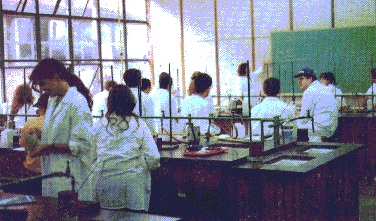
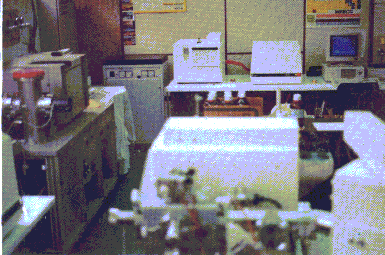 The brutal decrease in federal government
funds in the beginning of the 90's was partially healed by the implementation
of the Projects by FAPESP (a state-funding agency). This policy catalyzed
associations among groups and forced the Department to re-evaluate
priorities and to establish suitable infrastructure to its needs. The Department
settled on an academic policy, which reflected these priorities and
accommodated funding allocations and hiring of personnel.
The brutal decrease in federal government
funds in the beginning of the 90's was partially healed by the implementation
of the Projects by FAPESP (a state-funding agency). This policy catalyzed
associations among groups and forced the Department to re-evaluate
priorities and to establish suitable infrastructure to its needs. The Department
settled on an academic policy, which reflected these priorities and
accommodated funding allocations and hiring of personnel.
The Department is presently a prominent
department of the University of São Paulo and, in Brazil, one of
the most balanced centers for production of knowledge and training of specialized
personnel. A comparison of quality and quantity of production with institutions
of with developed countries places the Department among the majority of
the departments with similar goals. The Department of Chemistry
aims to reach the performance of the best of those departments as well
as to straighten the ties with similar departments from Brazilian universities.
PRINCIPAL RESEARCH AREAS IN CHEMISTRY
Ion-molecule Reactions and Gas Phase Collision
Phenomena
Electrochemistry and Electroanalytical
Chemistry
Surface and Interfacial Chemistry and
Catalysis
Rheology of Organized Systems and Liquid
Crystals
Spectroscopy
Analytical and Environmental Chemistry
Phytochemistry and Natural Products
Inorganic Synthesis and Reactivity
Organic Synthesis and Reactivity
Coordination Chemistry
Quantum Mechanics
Photochemistry





